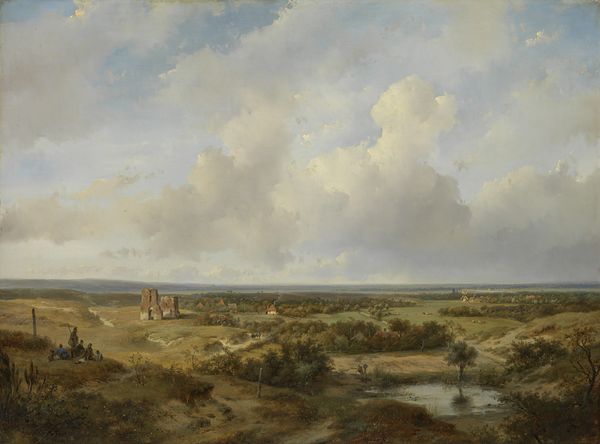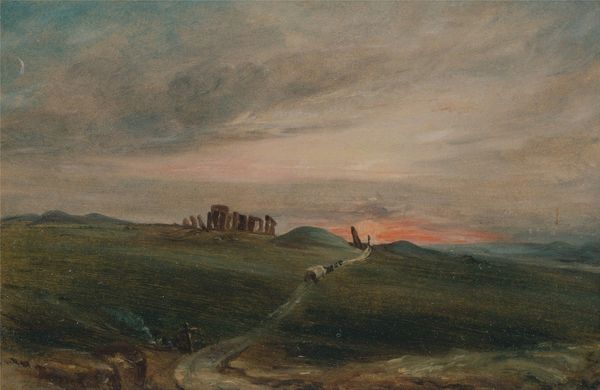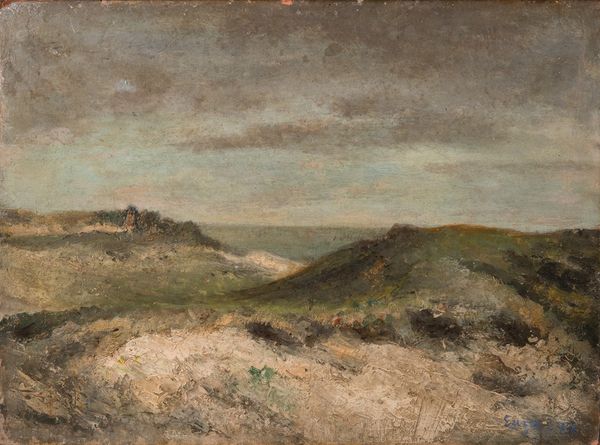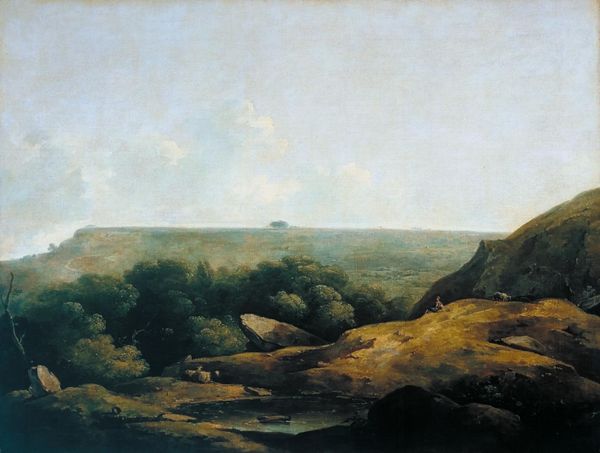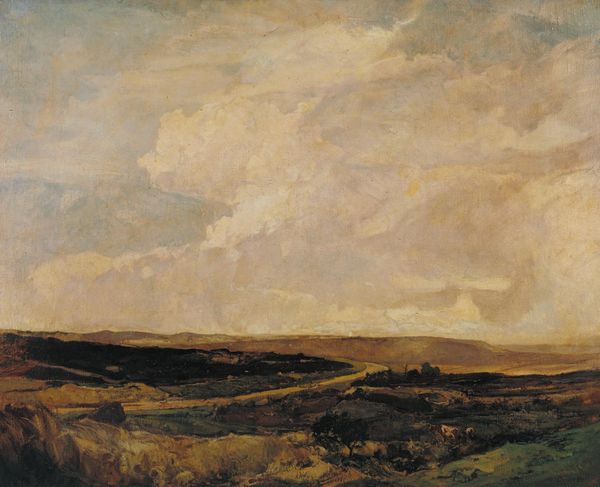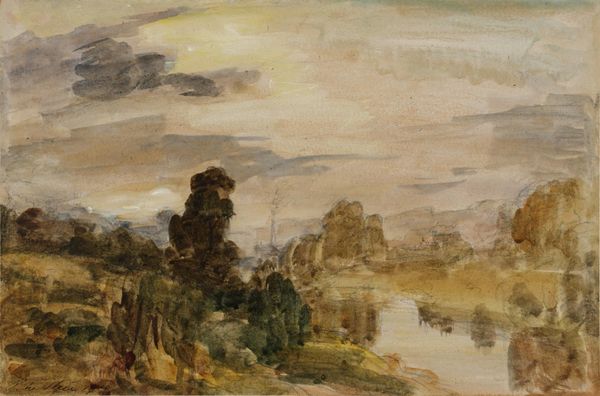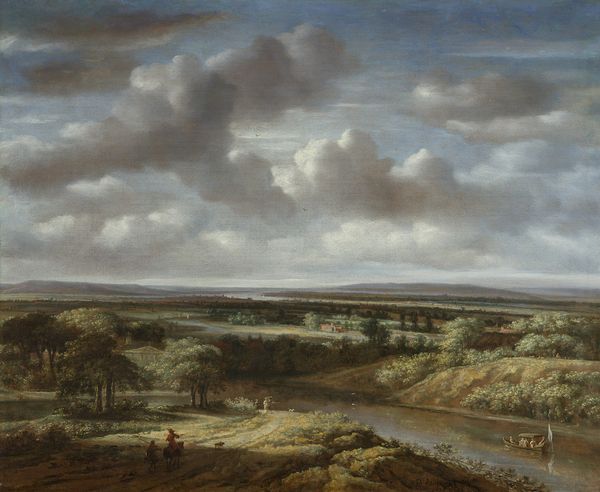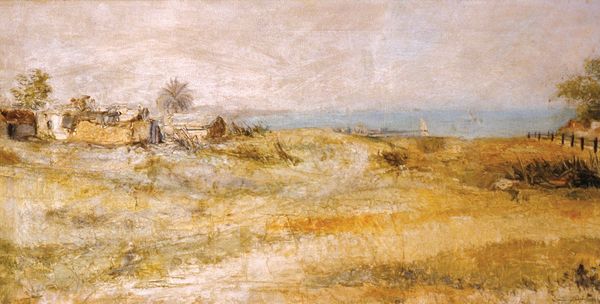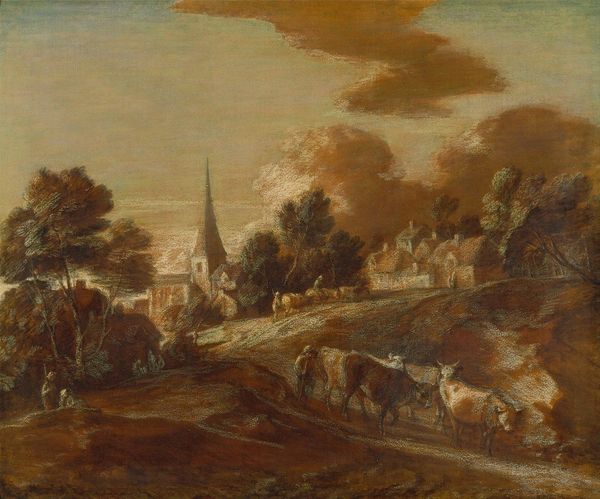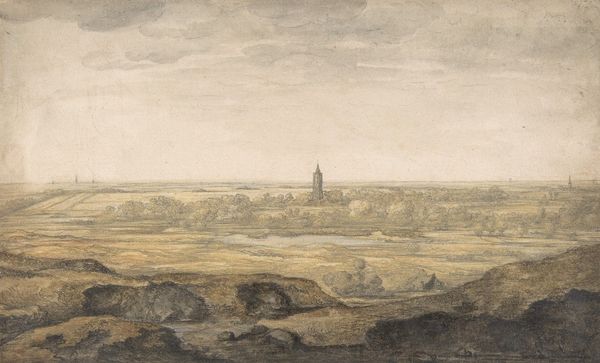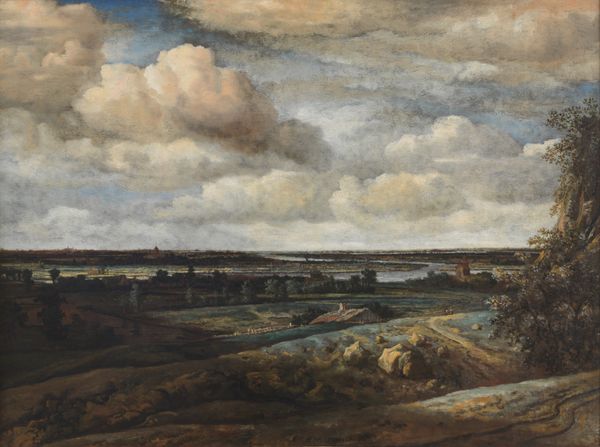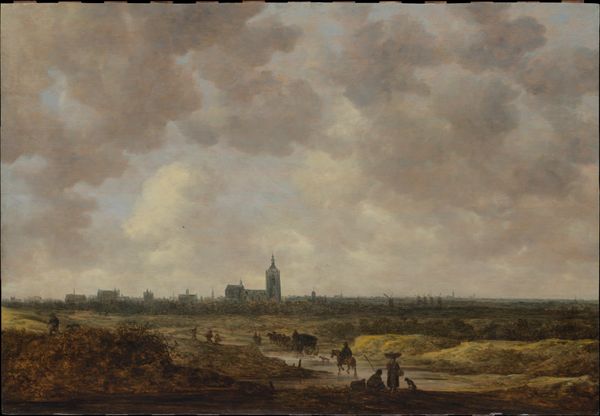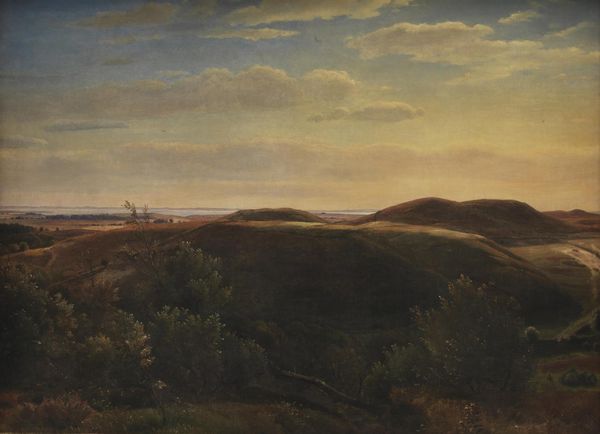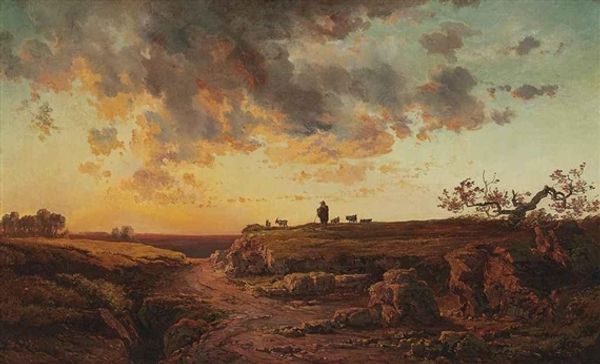
Dimensions: support: 529 x 687 mm frame: 700 x 855 x 60 mm
Copyright: CC-BY-NC-ND 4.0 DEED, Photo: Tate
Editor: Here we have Alexander Keirincx’s "Distant View of York" from the Tate Collections. The colors are muted, almost dreamlike. What symbols might Keirincx be using here to convey a sense of place and time? Curator: Notice how York is small, almost a mirage, while the figures in the foreground are rendered with subtle care. What does that juxtaposition suggest about the relationship between the individual and the city? Could it reflect a changing society, moving from rural to urban life? Editor: That's insightful! I hadn't considered the figures' placement in relation to the city itself. Curator: The atmospheric perspective creates a visual hierarchy; the eye is led from foreground figures through the landscape to the distant city. Consider how that journey may mirror the viewer’s own exploration of identity and belonging. Editor: Thanks, I'll never look at landscapes the same way again.
Comments
http://www.tate.org.uk/art/artworks/keirincx-distant-view-of-york-t04168
Join the conversation
Join millions of artists and users on Artera today and experience the ultimate creative platform.
This view of York was commissioned by Charles I as part of a group of ten paintings of towns and castles in the north of England and Scotland. It is dominated by the west front of York Minster. As the political situation deteriorated in the run-up to the Civil War, Charles I travelled north to confront hostile Scottish rebels at Berwick in May 1639. The artist may have accompanied him on this expedition. Keirincx was born and trained in Antwerp, later moving to Utrecht. He worked in Britain from 1638 to 1641, living in Orchard Street in Westminster. Gallery label, February 2016
